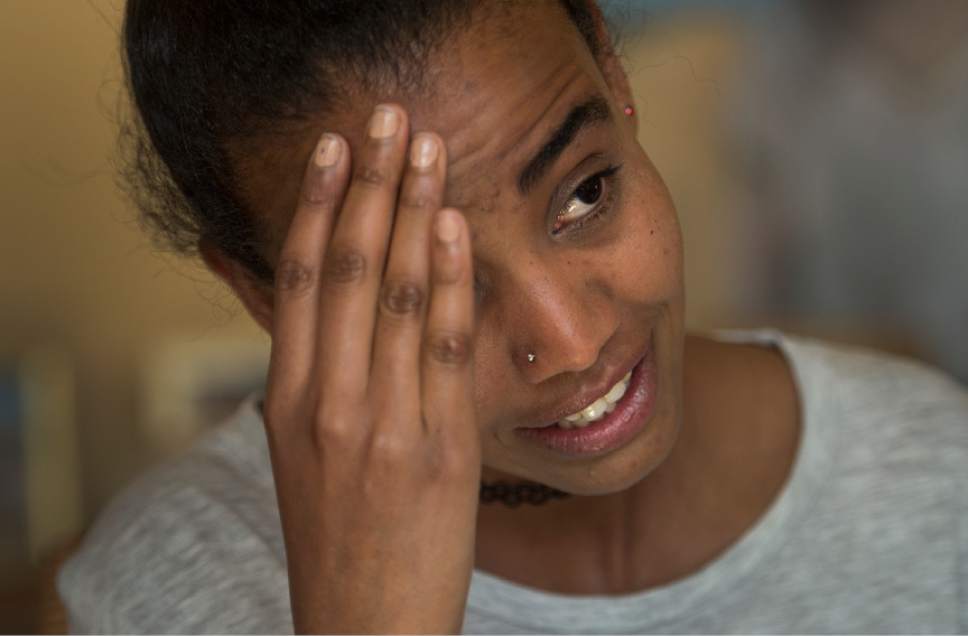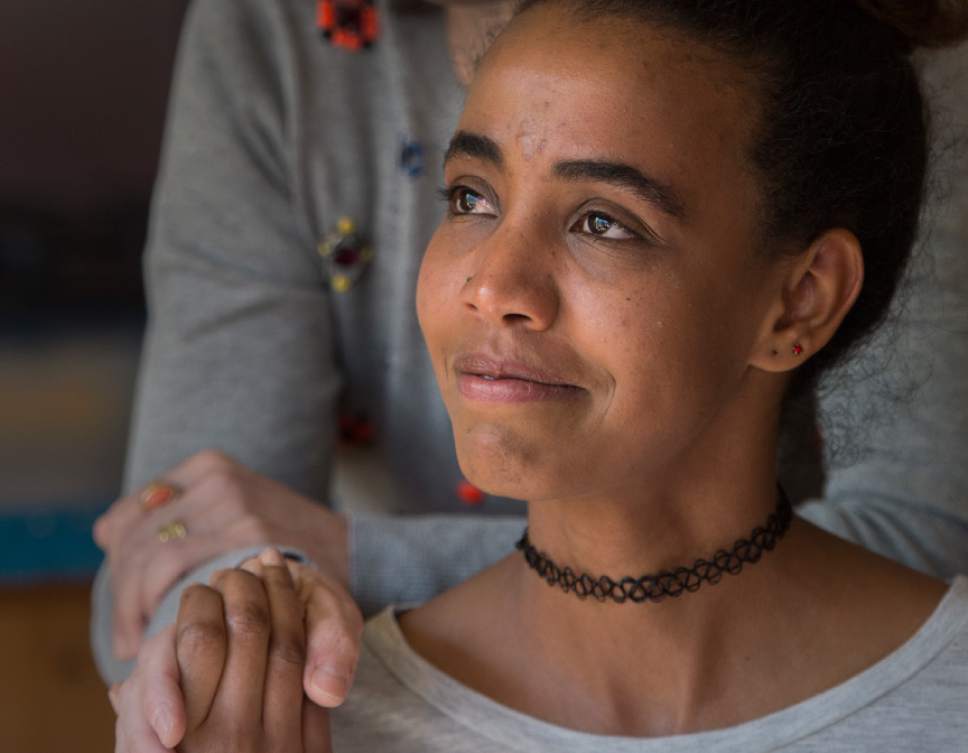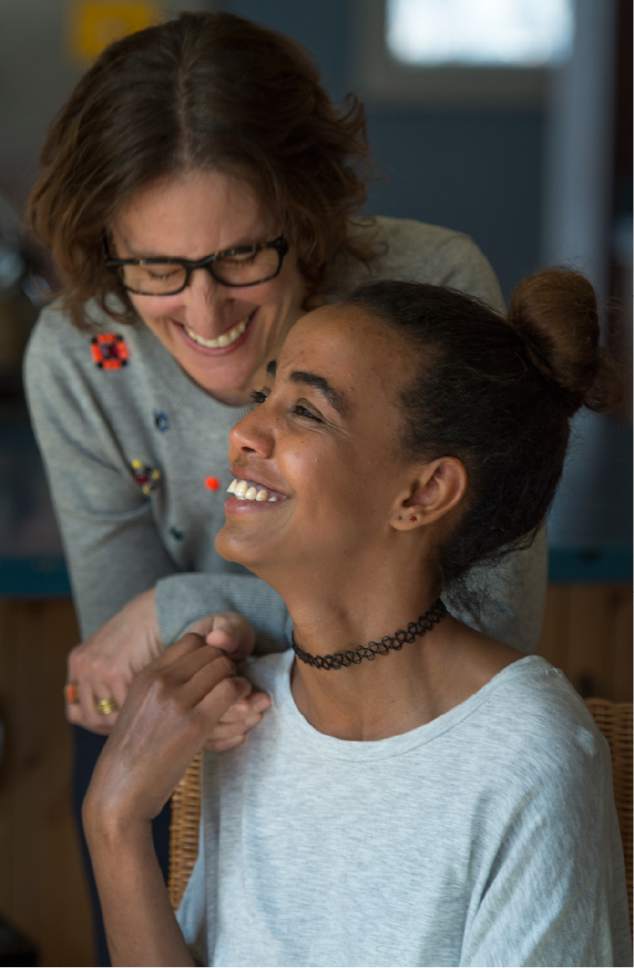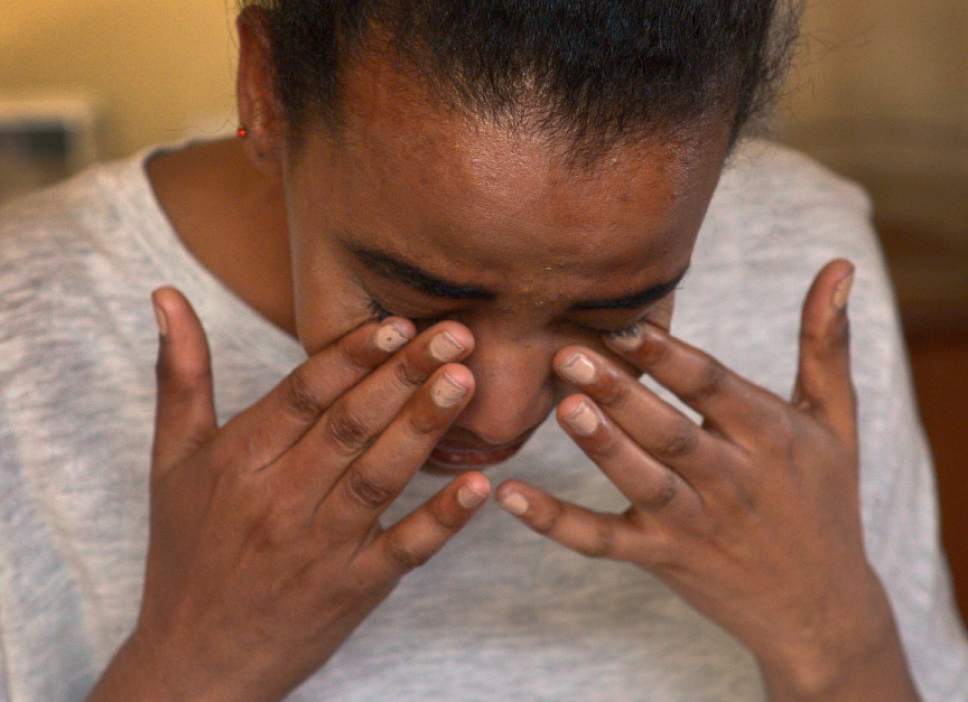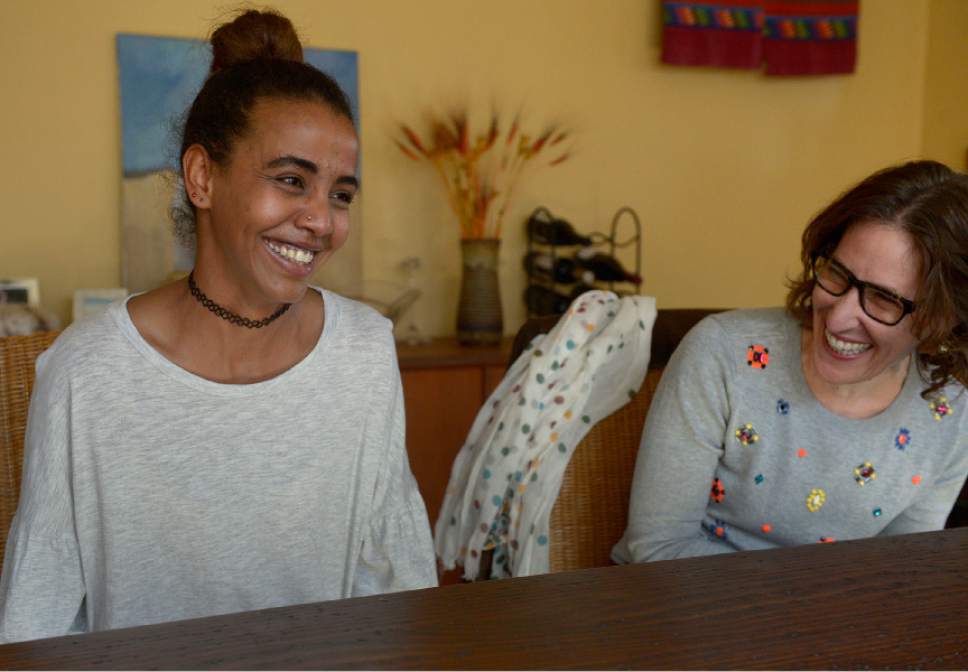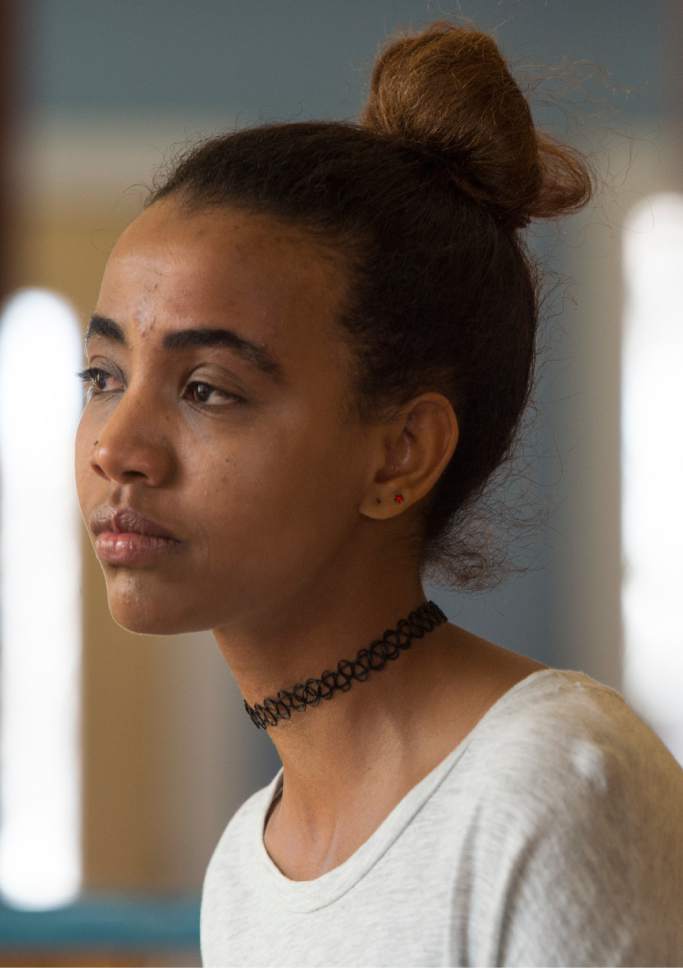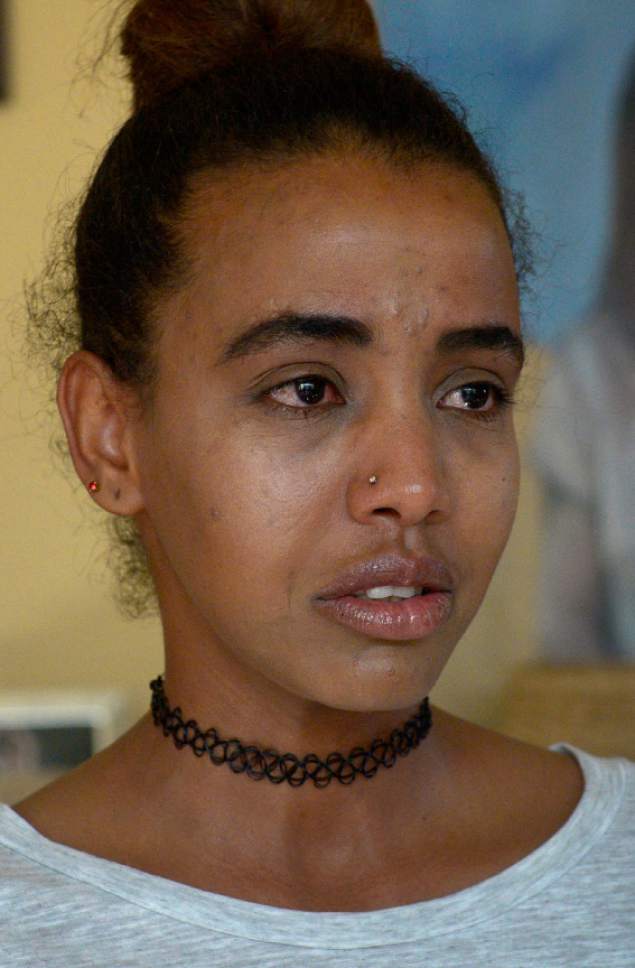This is an archived article that was published on sltrib.com in 2017, and information in the article may be outdated. It is provided only for personal research purposes and may not be reprinted.
Desperate to leave Eritrea, Africa, then 16-year-old Rita Okbalidet paid smugglers to take her to Sudan, where they sold her to human traffickers, who blindfolded her and stole her away to the Sinai desert in Egypt and demanded ransom from her mother.
She recalled those harrowing days last week in the comfortable home of Pam Silberman and Bryan Gibson in Salt Lake City. Although she doesn't like to dwell on it, Rita remembered languishing in the hot and horrible desert camp for four months, where people sometimes died when ransom wasn't forthcoming.
Traffickers eventually dropped her off blindfolded in Cairo near a church, where she found help and friendship.
Rita arrived in Salt Lake City on Sept. 9, 2014, three weeks before her 18th birthday. Now 20, she smiles when considering her new life. She has mastered English and just graduated from Horizonte Instruction and Training Center. Rita has enrolled in a certified nursing-assistant program at Salt Lake Community College. Her dream is to become a nurse.
Beyond that, she works 25 to 30 hours a week at Cafe Rio.
Rita has come a long way from those traumatic and desperate times during her exodus, said Silberman, her foster mother. She is now gregarious and determined to make her life successful.
"I have freedom. I have education. I have work," Rita said. "But half of my brain is with my family."
Rita's 15-year-old sister, Miriam, is in Khartoum, Sudan. Like Rita, she had paid smugglers to get her out of Eritrea, which is just north of Ethiopia on the horn of eastern Africa. And like her sister, she was sold to traffickers.
This time, it was Rita who paid the $5,000 ransom to free her.
"Traffickers prey on young people who have no future and want a better life," Silberman said.
Rita also sends money to her mother and two younger siblings, who remain in Eritrea. When she becomes a nurse, she will be able to support her mother, Rita said, eyes welling with emotion.
Miriam is now on the list of the United Nations High Commissioner for Refugees. The process to immigrate normally would take 18 to 24 months.
But President Donald Trump's renewed travel ban likely will be an obstacle in Miriam's effort to reunite with Rita. Not only is Miriam a refugee, but she is in Sudan, one of six countries banned under the president's executive order.
It is impossible to know Miriam's fate at this point, Silberman said. "Even though she is from Eritrea, she is now in Sudan — we don't know what that means."
Rita said Trump and his views on immigration frighten her. "It makes me so sad."
"I was always praying for Hillary Clinton," she said with a look of resignation.
In Eritrea, Rita lived in a small village with no electricity or running water. But that's not why she left. After the 11th grade, young men and women are conscripted into the Eritrean army, where they may spend the entirety of their working lives. Many young people want to leave Eritrea because there is no future there.
After eighth grade, Rita's mother kept her from returning to school, so she wouldn't be on the government's radar and could help raise her three younger siblings. Her father had left the family years earlier.
"I chose to leave my country," Rita said, "because I didn't have freedom."
If she were returned to Eritrea, she could be imprisoned or killed.
Rita was brought to the U.S. with the help of Catholic Community Services Unaccompanied Refugee Minor Program. But she didn't choose America.
Silberman explained that refugees seldom get to select a host country. People Rita met along the way are now scattered across Europe and in Canada. She keeps track of them on Facebook.
That is among the reasons why Trump's temporary refugee ban is ill advised, Silberman said.
Most refugees know little or nothing about the United States, she added. "It makes no sense to say, we want only people who love America."
"Refugees would really like to be in their own country," Silberman explained. "They just want to be safe and free."
Now that she is here, however, Rita wants to be an American. She loves practically everything about this country.
Recently, Rita was among a contingent of people who met with the staff of Utah Rep. Chris Stewart in Salt Lake City. She was nervous about the visit but said she wanted them to know what a refugee looks like.
"It's easy to think of refugees as people to be afraid of," Silberman said. "But when you see Rita, you say, 'aren't these the kind of people we want here?' "
Rita's face lights up when she thinks of running water and electricity. "There is water everywhere here," she said, recalling her previous life where it had to be carried from a well a mile from her house.
She loves to take showers. But her foster mother has to remind her to turn the lights off when she leaves a room.
And Rita now has the luxury to think about her future. That is something people in Eritrea don't normally do — they must focus on getting through the day, which includes obtaining basic things like food and water.
"You must understand, where I come from we don't think about the future," Rita said. "I had never thought about my future before I came here."
Rita's life has changed, but so has that of her foster family, including 15-year-old foster sister Willa Gibson.
Silberman said that Rita makes Willa much more appreciative of what she has, and gives the family a better understanding of people's struggles outside the United States.
"We should embrace the global world, rather than be afraid of it," Silberman said. "You don't have to leave the U.S. to get a better understanding of the world — just meet a refugee."
Anyone interested in becoming a foster parent for the Catholic Community Services Unaccompanied Refugee Minor Program can visit the website ccsutah.org or call 801-428-1283


